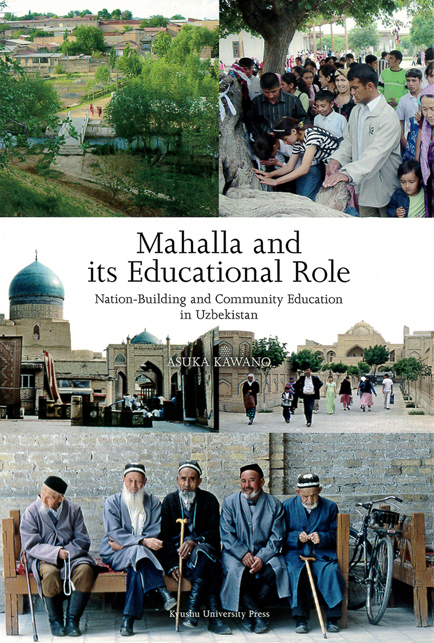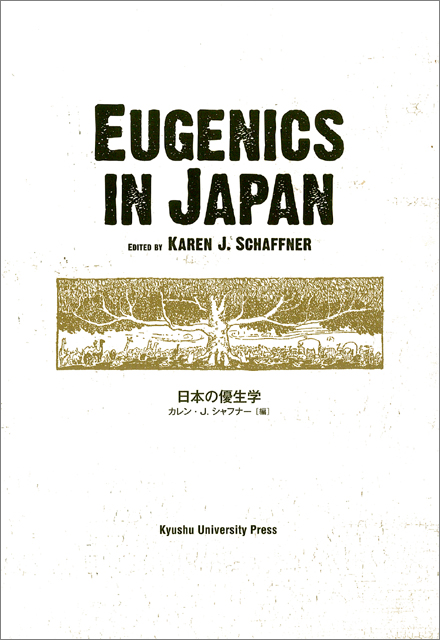- HOME >
- BOOKLIST >
- Social sciences>
- Mahalla and its Educational Role
Mahalla and its Educational Role Nation Building and Community Education in Uzbekistan
Introduction
Is it a community that is trapped as a creating apparatus for Nation-Building in a new nation, or is it an educational world for the people who should be protected?
This book is an English version of “Community ‘Education’: Nation-Building and Community Education in Uzbekistan” published in 2010 and argues the educational role played by mahalla, the local community, in present Uzbekistan from the perspectives of Nation-Building and community education.
The author, from the results of her long-term field work in Uzbekistan, conducted analyses of mahalla‘s educational roles, from various structural perspectives after independence from the Soviet Union; children’s socialization and cultural inheritance there, mahalla in school education, cultivation of citizenship awareness by the cooperation between mahalla and schools, youth education in collaboration with mahalla, NGO and various organizations including international organizations.
In conclusion, this book reveals that there are various educational roles from various aspects of modern mahalla, including Nation-Building from the perspective of government, mutual assistance provided by residents from the perspective of mahalla itself and activity practices by youth organizations, NGO and international organizations.
In present mahalla, voluntary and vivid activities of community education are carried out by residents. However, while the activities initiated by residents proceed, it is often the case that their activities fall within the range that government can accept. In the process of various activities, modern mahalla is a community mechanism to educate people into becoming “the Uzbekistan nation”.
Contents
Acknowledgments
Introduction:Challenges of Education Research in Central Asia
1.Education Research in Central Asia up to Now and Research Topics
2.Challenges in the Local Community Education Research in Central Asia
3.”Mahalla” in This Study and Purpose of the Study
Chapter 1 Mahalla in Uzbekistan and Historical Change in Their Educational Aspect
1.Previous History of Mahalla in Uzbekistan
2.Mahalla from the End of 19th Century to the Early 20th Century
3.Mahalla during the Period of Russian Empire and Mahalla Policy of Russian Empire
4.Mahalla in the Period of Soviet Union and Mahalla Policy of the Soviet Authority
5.Mahalla in Uzbekistan after Their Independence and Mahalla Restoration Policy of the Uzbekistan Government
Conclusion
Chapter 2 Mahalla Structure and Learning for Adults after Independence
1.Systemization of Mahalla by the Nation
2.Activities of Mahalla as the End Institution of the Government
3.Community Education Activities by Mahalla Residents and Female Support
Conclusion: How the Adult Learning in Mahalla Can Be Understood
Chapter 3 The Socialization and Cultural Succession of Children in Mahallas
1.Children’s Life in Uzbekistan’s Mahallas
2.Children’s Rites of Passage and Islam
3.Becoming Socialized through Ceremonies and Rituals Conducted at Mahallas
Conclusion
Chapter 4 Mahalla in School Education
1.School System of Uzbekistan and Educational Reform after the Independence
2.The Political and Social Background of Implementing Mahalla in School Education: “From a Strong State to a Strong Civil Society”, Mahalla as a Social Foundation
3.Mahalla’s Image in School Education and Principles
4.The Actual Situation and Significance of Implementation of Mahalla in School Education
Conclusion
Chapter 5 Raising “Citizen” Awareness in Uzbekistan through a Combined Effort between Mahallas and Schools
1.Fostering “Citizen” Awareness in Young People after the Independence of Uzbekistan
2.Fostering the Social Awareness of “Citizenship” in School Education in Uzbekistan
3.Fostering a Social Awareness of “Citizenship” by Mahallas
Conclusion
Chapter 6 Youth Education through the Cooperative Activities of Institutions: Examples from Mahalla, NGOs, and International Organizations
1.Position of NGOs and Youth Organizations in Uzbekistan and Their Activities
2.Cooperative Activities of Each Institutions and Mahalla
3.Image of Local Community for Young People in Uzbekistan and the Activities of Each Institution: Based on a Survey from Multiple Universities
Conclusion
Final Chapter:Educational Role of Mahalla in Uzbekistan
1.Relationship of the Educational Role in Each Institution
2.A Community That Educates
Conclusion Future Views and Challenges
Selected Bibliography
Author
Asuka Kawano (Ph.D. in Education), is an Associate Professor of the Graduate School of Education and Human Development at Nagoya University, Japan. She completed her undergraduate degree in jurisprudence, and received her master's degree in the study of education at Fukuoka University. She was a research fellow at the Tashkent State Pedagogical University, Uzbekistan in 2006-2008 and conducted many field works on education and local communities in Uzbekistan and Central Asian countries. She earned her Ph.D. in education at Kyushu University, Japan. Her main areas of interest are education in Central Asia, social pedagogy, the international cooperation of adult education, community education and lifelong learning.


